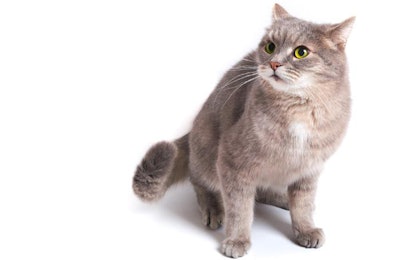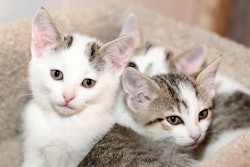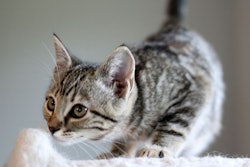
Weruva International opened an online survey for Australian cat owners whose pets may have been affected by insufficient thiamine levels in numerous batches of Best Feline Friend (BFF) cat food. Weruva intends the survey to help the company communicate with veterinarians and connect owners with Weruva’s insurance company.
History of the Best Feline Friend cat food market withdrawal
In May, every can of Best Feline Friend cat food was pulled from pet food retailers. The removal of Best Feline Friend cat food followed hundreds of reports of cats allegedly becoming ill or even dying after eating the wet pet food.
At the time, heavy metal poisoning was suspected, according to a Weruva statement. However, lab testing found only normal, trace amounts of heavy metals like mercury and cadmium. The test did reveal that the cat food may have contained insufficient amounts of thiamine, a B vitamin essential for cat survival. The symptoms of heavy metal poisoning may mimic those of thiamine deficiency.
“Certain batches of our Australian BFF canned foods with ‘Best By’ dates ranging from December 2017 through December 2019 contain insufficient Vitamin B1 to be labeled as complete and balanced per AAFCO,” according to an announcement by Weruva.
“Experts have stated that our Australian BFF canned foods are not a likely cause for heavy metals toxicity and that the levels of heavy metals in our foods are not of toxicological consequence,” according to Weruva’s statement.
Weruva released a list of the batches that may contain insufficient thiamine. All other Weruva products have been tested and are not of concern, according to the company.
Thiamine deficiency symptoms in cats
Cats fed diets low in thiamine for several weeks may be at risk for developing a thiamine deficiency. Symptoms of deficiency displayed by an affected cat can be gastrointestinal or neurological in nature. Early signs of thiamine deficiency may include decreased appetite, salivation, vomiting and weight loss. In advanced cases, neurological signs can develop, which include ventroflexion (bending towards the floor) of the neck, wobbly walking, circling, falling, and seizures.
















